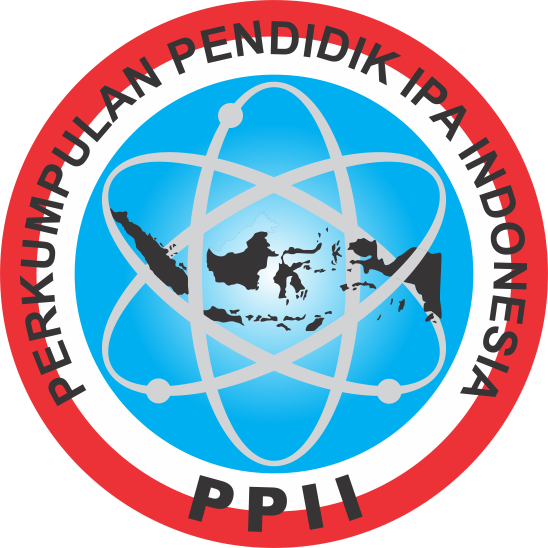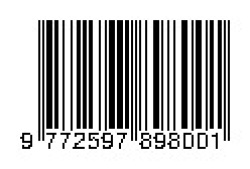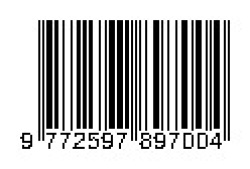THE INFLUENCE OF A STRUCTURED INQUIRY LEARNING MODEL ON INCREASING SCIENCE LITERACY COMPETENCY IN CLASS VIII OF SMP NEGERI 01 BAJENG
(1) Department of Science Education, Universitas Negeri Makassar, Indonesia
(2) Department of Science Education, Universitas Negeri Makassar, Indonesia
(3) Department of Science Education, Universitas Negeri Makassar, Indonesia
(*) Corresponding Author
DOI: https://doi.org/10.35580/ipaterpadu.v8i1.59729
Abstract
Full Text:
PDFReferences
Ali, T. G. (2021). Implementation of Structured Inquiry Learning. Pro Guru Scientific Journal, 1 (7).
Arwan, A., Tawil, M., & Ramlawati. (2021). The Effect of Guided Inquiry Learning Model on Critical Thinking Skills of First Grade VII Students. Jurnal IPA Terpadu, 5 (1).
Fatmawati, I. N & Utari, S. (2015). Penerapan Levels of Inquiry untuk Meningkatkan Literasi Sains Siswa SMP Tema Limbah dan Upaya Penanggulangannya. Jurnal EDUSAINS, 7(2).
Hake, R. R. (1999). Analyzing Change/Gain Scores. Woodland Hills: Dept. of Physics, Indiana University.
Hasan, A. Z., Ramlawati, & Mamin, R. (2019). Pengaruh Model Pembelajaran Guided Inquiry terhadap Keterampilan Proses Sains Peserta didik kelas VII SMP Negeri 2 Lilirilau. Jurnal IPA Terpadu, 2 (2).
Harefa, E. (2023). Implementation of Scientific Inquiry Approach for Enhancing Scientific Literacy among Elementary Students. Journal of Elementary and Childhood Education, 1 (1).
Harlina, Ramlawati, & Rusli, M. A. (2020). Deskripsi Kemampuan Literasi Sains Peserta Didik Kelas IX Di SMPN 13 Makassar. Jurnal IPA Terpadu, 3 (2).
Habiby, W. N. (2017). Statistika Pendidikan. Surakarta: Muhammadiyah University Press.
Lailatun, N., Mahdian, & Hamid, A. (2017). Pengaruh Model Pembelajaran Peer Led Guided Inquiry (PLGI) terhadap Literasi Sains dan Hasil Belajar Siswa pada Materi Hidrolisis Garam Siswa Kelas XI PMIA SMAN 3 Banjarmasin. Journal of Chemistry and Education, (1) 1.
Muliana, S., Muhiddin, N. H., & Yunus, S. R. (2019). Pengaruh Model Kooperatif Tipe Group Investigation (GI) Terhadap Keterampilan Berpikir Kritis Peserta Dididk pada Materi Pokok Sistem Ekskresi Kelas VIII SMP Negeri 15 Makassar. Jurnal IPA Terpadu, 2 (2).
Nugraheni, N. C., Paidi, & Triatmanto. (2017). Kemampuan Literasi Sains kelas X SMA Negeri Mata Pelajaran Biologi berdasarkan Topografi Wilayah Gunungkidul. Jurnal Prodi Pendidikan Biologi, 6(5), 261-271.
Nurhayati, Saenab, S., & Asriani. (2019). Peningkatan Motivasi, Aktivitas dan Hasil Belajar IPA Melalui Penerapan Model Pembelajaran Inkuiri Terbimbing Peserta Didik Kelas VIII 1 Di SMP Negeri 1 Bulukumba. Jurnal IPA Terpadu, 3 (1), 57-64.
Nofiana, M., dan Julianto, T. (2018). Upaya Peningkatan Literasi Sains Siswa Melalui Pembelajaran Berbasis Keunggulan Lokal. Biosfer: Jurnal Tadris Biologi, 9(1).
OECD. (2017). PISA for Development Assessment and Analytical Framework: Reading, Mathematics, Financial Literacy and Collaborative Problem Solving. revised edition. Paris: OECD Publishing.
OECD. (2019). PISA 2018 Assessment and Analytical Framework. Paris: OECD Publishing.
Riduwan. 2020. Dasar-Dasar Statistika. Bandung. Alfabeta.
Siska, S. A., Setiadi, D., & Citra, D. A. (2020). Pengaruh Model Inkuiri Bebas Terhadap Kemampuan Literasi Sains. J Pijar MIPA, 15(2) 140-144.
Sari, F. W., Muhiddin, N. H., Yunus, S. R., & Saenab, S. (2021). Pengaruh Model Pembelajaran Kooperatif Tipe Make A Match Terhadap Hasil Belajar Peserta Didik Kelas VIII SMPN 4 Tanasitolo. Jurnal IPA Terpadu, 5 (1), 1-8.
Sugiyono. (2018). Metode Penelitian Kombinasi (Mixed Methods). Bandung: CV Alfabeta.
Pratiwi, S. N., Cari, C., & Aminah, S. (2019). Pembelajaran IPA Abad 21 dengan Literasi Sains Siswa. Jurnal Materi dan Pembelajaran Fisika (JMPF), Volume 9 Nomor 1 2019 ISSN: 2089-6158.
Wefusa. (2015). New Vision for Education Unlocking the Potential of Technology.
Wulandari, N., & Sholohin, H. (2016). Analisis Kemampuan Literasi Sains pada Aspek Pengetahuan dan Kompetensi Sains siswa SMP Pada Materi Kalor. EDUSAINS, 8(1), 66-73.
Winata, A., Cacik, S., & Seftia, I. (2018). Kemampuan Awal Literasi Sains Peserta Didik SDN Siderejo I Tuban pada Materi Daur Air. JTIEE (Journal of Teaching in Elementary Education), 2 (1).
Article Metrics
Abstract view : 5 times | PDF view : 0 timesRefbacks
- There are currently no refbacks.
Published by:
Program Studi Pendidikan IPA FMIPA
Universitas Negeri Makassar
Alamat Redaksi:
Indexed By:

Jurnal IPA Terpadu (JIT) is licensed under a Creative Commons Attribution-NonCommercial 4.0 International License.

.png)






